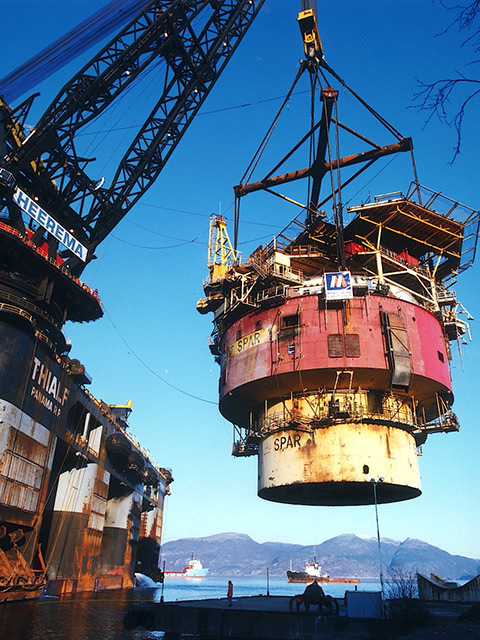
Royal Dutch Shell are likely to take their time over the Brent decommissioning process due to the controversial fallout from a previous disposal attempt, according to one industry analyst.
The energy giant hit the headlines back in 1995 when it first floated plans to dispose of the Brent Spar holding and loading platform by sinking it in the deep waters of the Atlantic.
After getting wind of the plans, environmental group Greenpeace mounted a large-scale media campaign against the dumping of the Shell-owned oil and tanker loading buoy.
They claimed that the reported contaminants on board could have a negative impact on the marine eco-system.
Protesters managed to occupy the installation for nearly three weeks before being evicted.
Shell later said the Brent Spar had become of “symbolic significance out of all proportion to its environmental effect”.
The Brent was then mothballed in a Norwegian yard before it was turned into foundations for a ferry terminal
Ben Wilby of global energy consultancy Douglas-Westwood said the supermajor’s recent submission of draft strategies for removing four other platforms from the Brent field was the first “high-profile” example of a disposal since.
And the market analyst said all other North Sea operators would be watching intently as the work gets underway over the coming decade.
Wilby said: “Shell are being particularly cautious about this because of the legacy of the Brent Spar.
“To my knowledge this is the first major, high-profile, decommissioning activity that is going to be undertaken.
“It makes sense that they are being especially cautious as there’s no real precedence to go by.”
The first topside is expected to be lifted by the world’s largest boat, Pioneering Spirit, later this year.
Shell’s entire decommissioning programme for the Brent field is expected to last into 2026.
Wilby added: “The fact that Shell are getting the public consultation out now shows they are fairly comfortable with what they are doing and how it might work
“Operators will still need to look at decommissioning on a case by case basis but once you’ve got a couple of projects under your belt, you know the people to go to in order to get the work done.
“So there’s quite a lot riding on whether this one is a success.”
Recommended for you
